Perspectives on Lung Cancer Caregiving: Stephen and Emily Huff
Edited by: Chris Sanchez
This is Stephen and Emily Huff’s cancer caregiver story. When Stephen was diagnosed with stage 4 lung cancer at just 29, he was devastated. A former professional baseball player and educator who’s lived a healthy lifestyle for years, he could never have imagined that seemingly harmless symptoms like shortness of breath and a cough would lead to such a diagnosis.
But by Stephen’s side through every doctor’s appointment, treatment session, and emotional high and low was his wife and dedicated cancer caregiver, Emily. She’s far more than just his caregiver, though. She’s Stephen’s advocate, researcher, emotional anchor, and greatest cheerleader. Her strength and vulnerability helped them both navigate the complexities of living with cancer. They faced their fears together and grew stronger as a couple, thanks to their openness and support for each other.
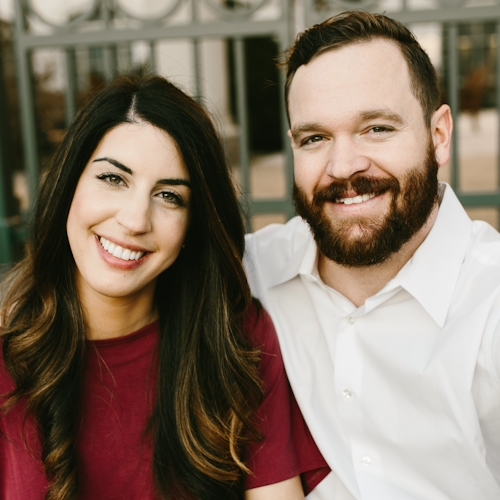
Stephen’s prognosis was daunting, to say the least, but he and Emily clung to hope. They had shared a dream of parenthood, and it became a wonderful reality with the birth of their son, Owen, in 2020.
Stephen credits his survival not just to medical treatments but to Emily’s presence and support. Read their story and watch their video to learn more about:
- How Emily helped Stephen thrive beyond a stage 4 diagnosis
- The role of a cancer caregiver in helping a patient deal with life’s toughest moments
- From diagnosis to parenthood: A couple’s empowering journey through lung cancer
- The strength that love and faith brought to Stephen’s cancer story
- Name:
- Stephen Huff
- Age at Diagnosis:
- 29
- Diagnosis:
- Lung Cancer
- Staging:
- Stage 4
- Symptoms:
- Lingering shortness of breath
- Persistent cough
- Lump in collarbone
- Treatments:
- Targeted therapy
- Radiation therapy
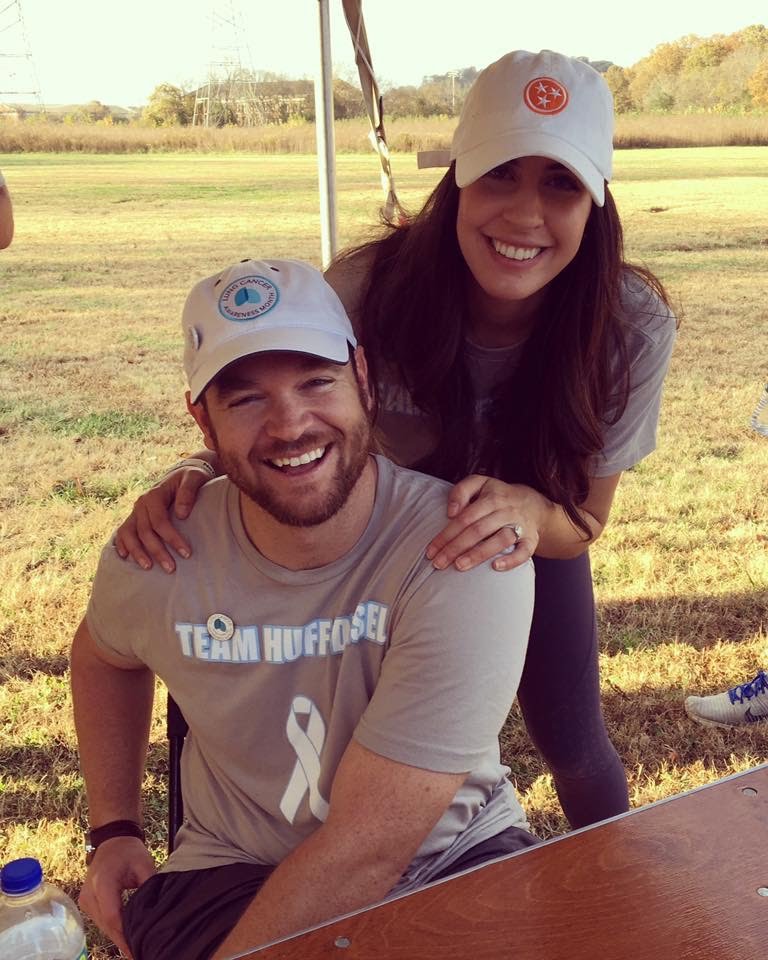

Thank you to Pfizer for supporting our patient education program. The Patient Story retains full editorial control over all content.
This interview has been edited for clarity and length. This is not medical advice. Please consult with your healthcare provider for treatment decisions.
Honestly, I wouldn’t be here today if not for Emily. She’s been the treatment that’s kept me alive.
About Stephen
Stephen Huff: My name is Stephen, and I survived stage 4 lung cancer thanks to my doctors, family, and my wife and cancer caregiver, Emily.
I’ve tried to live a very healthy and straightforward life. Growing up, I was heavily involved in sports, especially baseball. I’ve had the privilege of playing college and professional baseball, and I was extremely vigilant about what I put into my body.
It started with my dad. My dad loves baseball. Growing up in the South in the ‘90s, the only TV station that we got at night was the Atlanta Braves. The 90s were the mecca for Atlanta Braves baseball. Every night, coming home from school, we’d get our dinner trays out and watch the Braves play.
I fell in love with baseball. I grew up at the baseball park. I was there even when I wasn’t quite old enough to play. I watched him and tried to envision what it would look like when I was old enough to play myself. Once I started to play, it took off. I got the bug bad and became obsessed with it.
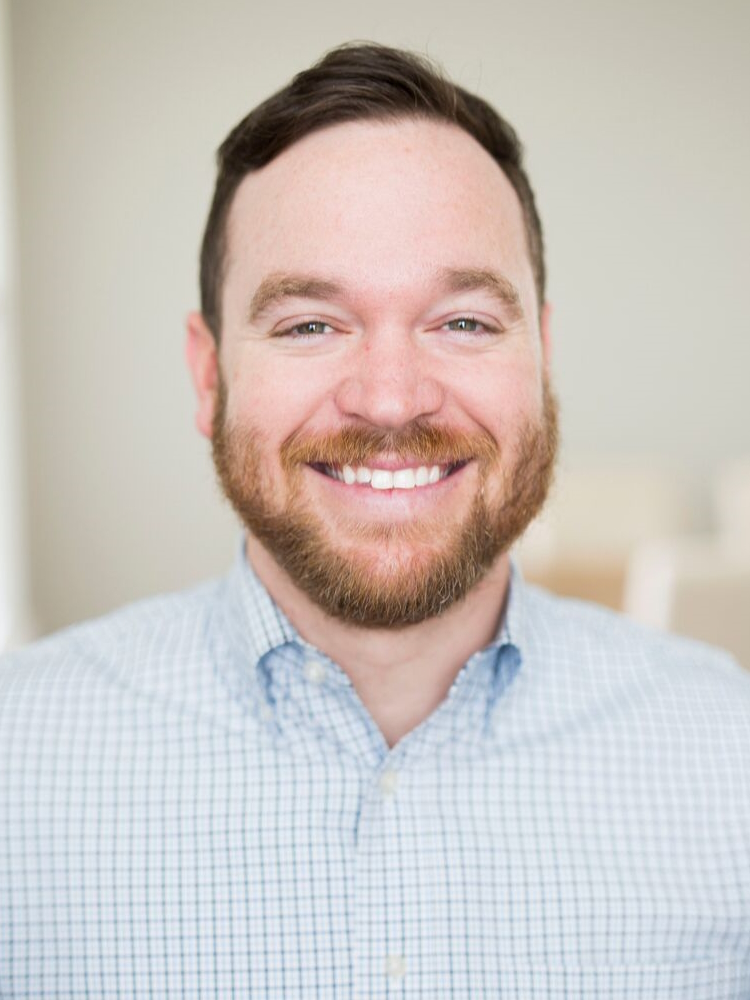



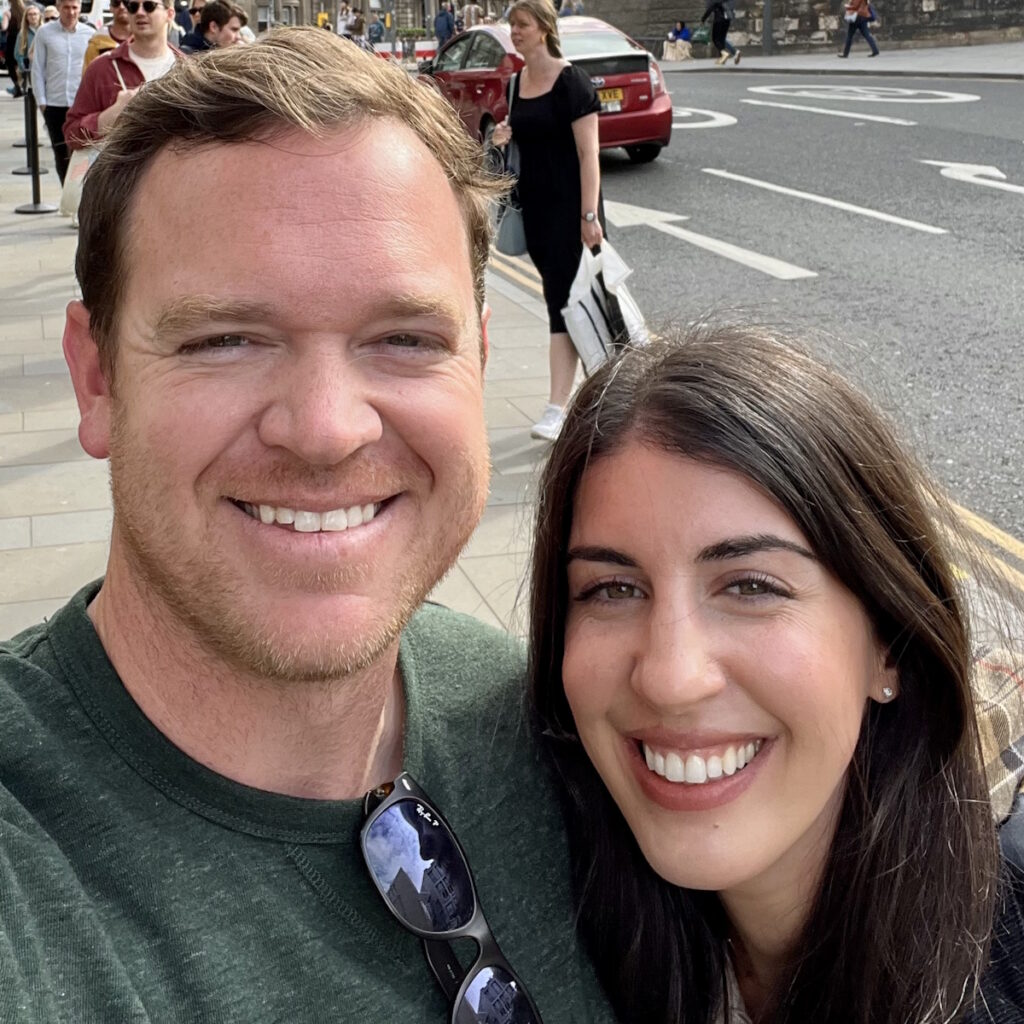
My First Lung Cancer Symptoms
Stephen: It was 2017, and I was 29. Things were starting to line up for me. I returned to graduate school and earned my master’s degree in education. I’d just landed my first teaching job, and I was very excited about starting a new career. I was engaged to the love of my life, Emily. We were going to get married in September 2017.
I experienced what I thought was a minor instance of shortness of breath. However, it started happening again and again, to the point where it would interrupt me while I was talking. I had a similar experience with coughing. What began as a daily cough evolved into difficulty breathing and a problem lying down at night.
Emily Huff: One day, he felt a lump in his collarbone. We didn’t correlate the two, but it was something that was bothering him, so I told him to get it checked out.
I knew the words that were going to come out of his mouth before he even said them. It was a very surreal feeling.
Getting My Diagnosis
Stephen: I was about halfway home when my phone rang. It was a number that I didn’t recognize. It was my doctor on the other end. He said, “Stephen, are you driving right now?” I said, “Yes. Is everything okay?” And he said, “I think you should pull over.”
I remember pulling into a parking lot in a church near where we lived. I was almost home at this point, and my heart began to race. I knew the words that were going to come out of his mouth before he even said them. It was a very surreal feeling. I was terrified. My heart was racing. I could hardly speak. I was so nervous and jittery.
He said, “Stephen, I’ve made an appointment for you with an oncologist first thing tomorrow morning.” I asked, “An oncologist, like a doctor or a physician who specializes in cancer?” And he said, “Yes.”
Emily: We had our appointment the next day, and they told us that it looked like adenocarcinoma.
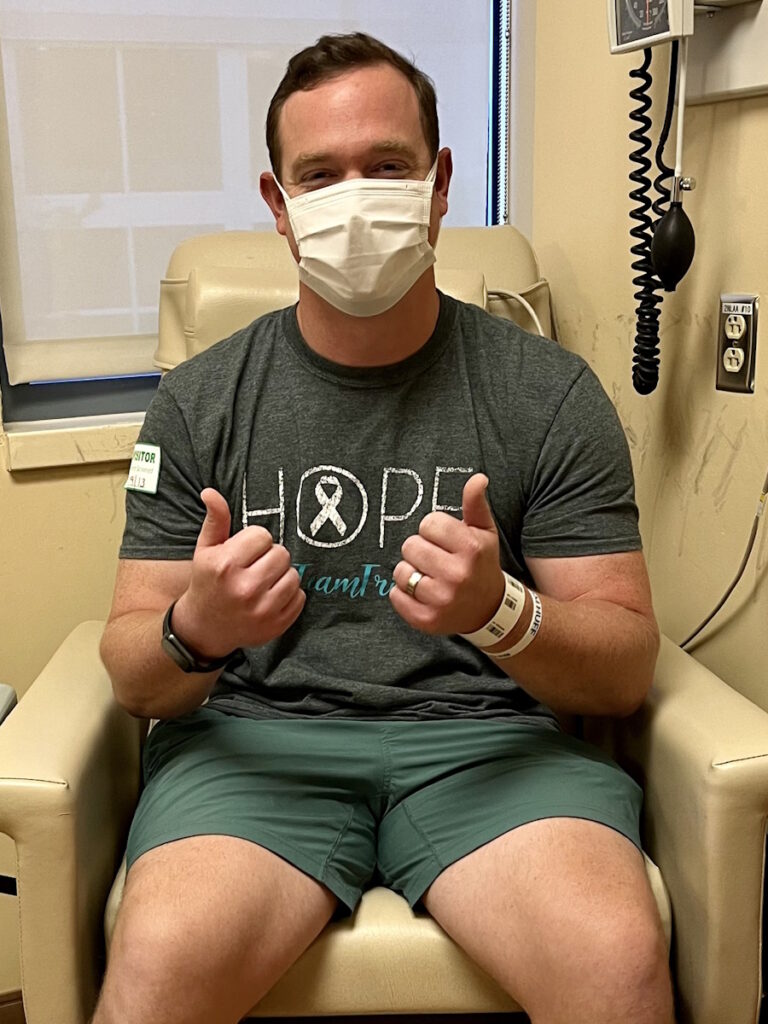
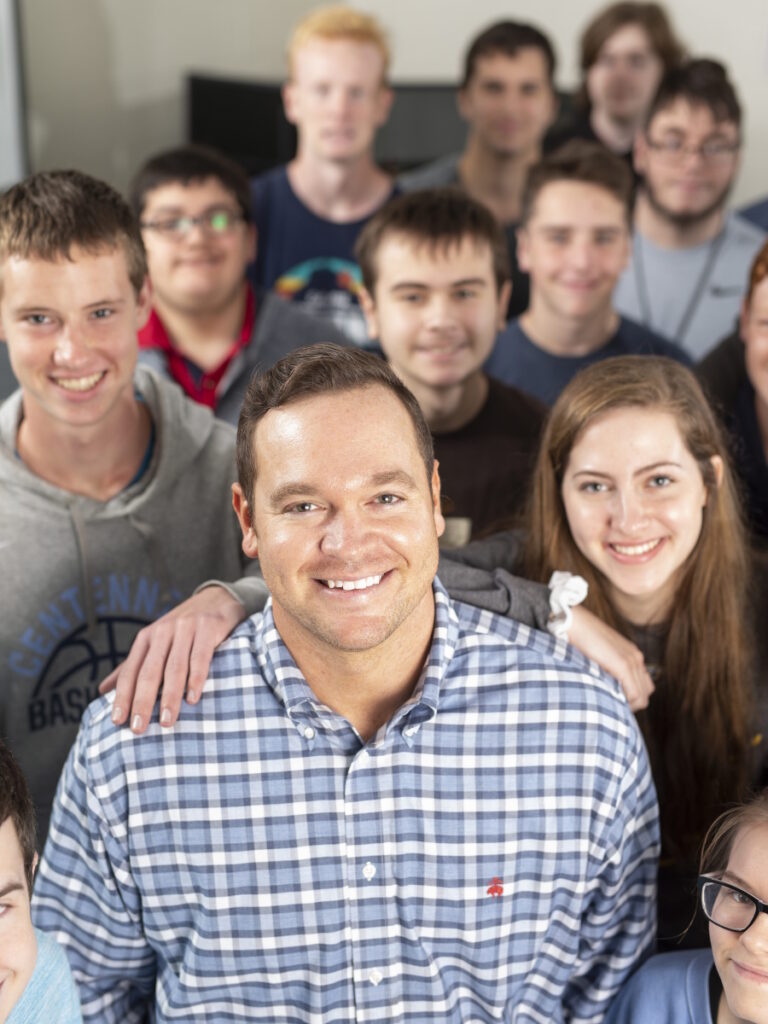
Stephen: I don’t remember a whole lot after that. I asked, “What’s going on? What did you see? What did the scan say?” These were his exact words. “Something very serious is going on in your body, Stephen.”
That afternoon, I called Emily. She was on a work trip, and I said, “Can you come home, please?” Of course, she asked me a million questions. But her response at the end was, “Yes, I’m coming back soon.”
My Reaction to My Diagnosis
Stephen: I can’t even put that experience into words. I wouldn’t wish that experience on my worst enemies. I would never wish for anyone to go through the process of hearing those words from a doctor. Immediately, I went into denial when I heard that.
I’m a man of faith, and I lean very much into my faith. I do believe that my Lord and Savior has sent two angels into my life. The first one is Emily, and the second one is my mom. My mom works in the cancer research industry, so I asked my mother, my father, and Emily to come with me to my appointment.
Emily: My first feeling when I heard that diagnosis was complete and utter devastation. It was like the world stopped. We were in the doctor’s office with our parents. You almost stop hearing and seeing things. Your mind starts racing. I couldn’t believe it.
After the appointment, we didn’t even know what to do with ourselves. We got cheeseburgers, which is the weirdest thing. How do you move forward after hearing those words?
I remember hearing more from the doctor than my husband did because he was even more in shock. Thankfully, his parents and I were there to put the pieces together and figure out a plan for the next steps.
I went home and started reading. I read everything there was to read about non-small cell lung cancer, different driver mutations, possible treatment options, being a cancer caregiver, and what this experience could look like.
We searched for survivor stories. That was something we had to lean on in the first few days. We were trying to pull some form of hope, because in that doctor’s office, we were told he had a 5% chance of survival for five years. That’s something we could neither accept nor make sense of.
As Stephen’s cancer caregiver, I wanted to try to find as much hope by researching on the Internet. That was my way of helping in those first few days.
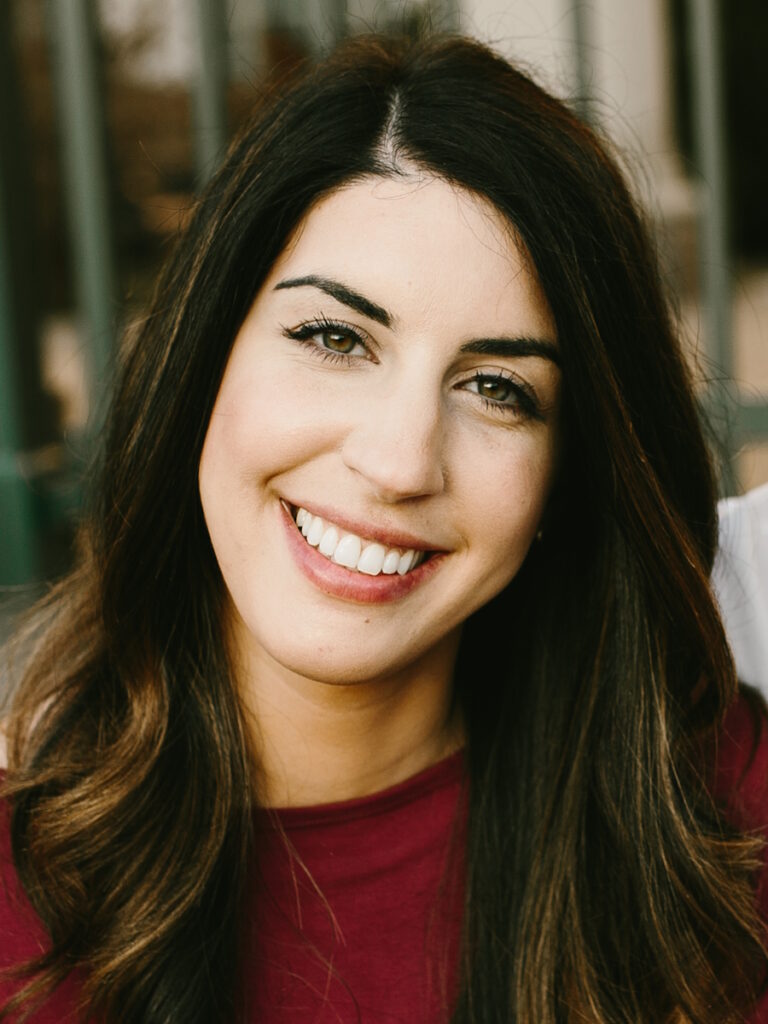
I remember hearing more from the doctor than my husband did because he was even more in shock. Thankfully, his parents and I were there to put the pieces together and figure out a plan for the next steps.
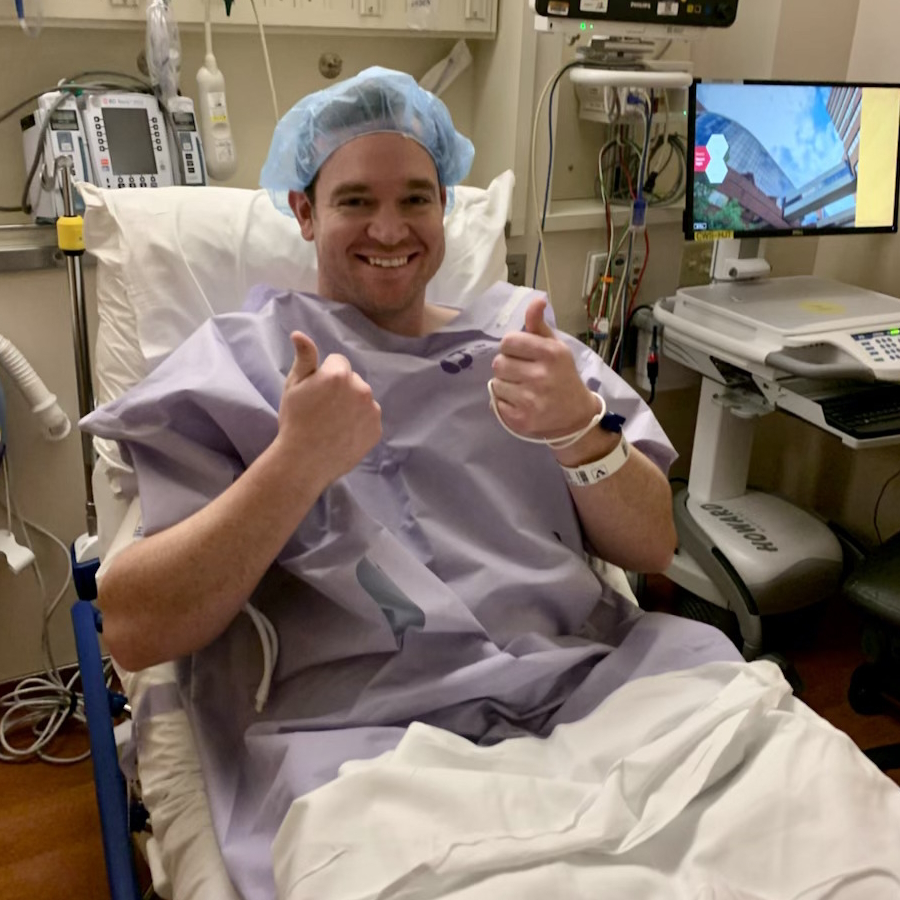
Side Effects of My Treatment
Stephen: My first line of treatment was a targeted therapy and not chemotherapy. I did end up getting some radiation. However, thankfully, because I’ve been on targeted therapies since I was diagnosed, my side effects have been pretty manageable.
Mentally, it’s been challenging at times. One of the things that cancer in general does, and even treatments do, for that matter, is take away the feeling of control in life. I had a really hard time with that, feeling like I didn’t control my destiny.
It’s been an adjustment for me. Before my diagnosis, I was very healthy and very active. I had full control of my body and the path forward. But the treatments have been a lifesaver. They kept the cancer at bay.
Honestly, I wouldn’t be here today if not for Emily. She’s been the treatment that’s kept me alive. My family has kept me alive.
She’s my rock. She’s my cancer caregiver. She’s also my confidant. She’s my best friend. She’s my soft place to land. She’s also my biggest motivator.
Role of a Cancer Caregiver
Stephen: Emily is born with the temperament to not only put up with me but also to deal with a husband who has stage 4 lung cancer.
She comes to every single appointment. She takes notes. She does research. She’s involved in advocacy. I tell her all the time, “I don’t know how you do it.” Caregivers withstand so much.
They listen to us and go through everything we go through. Yet patients are often the priority. “How’s Stephen doing? Is he okay? Is he sleeping enough? Is he eating enough?” She is so strong that I have to step back and ask her, “How are you doing? How are things with you?” I can’t imagine the weight that she carries.
Emily’s very strong. She’s also very stoic, so she doesn’t wear her emotions on her sleeve. A lot of times, when we would be going through something challenging, she put her strong face on and said, “Let’s do this. We got this.” Deep down, I knew that she was battling. She was hurting.
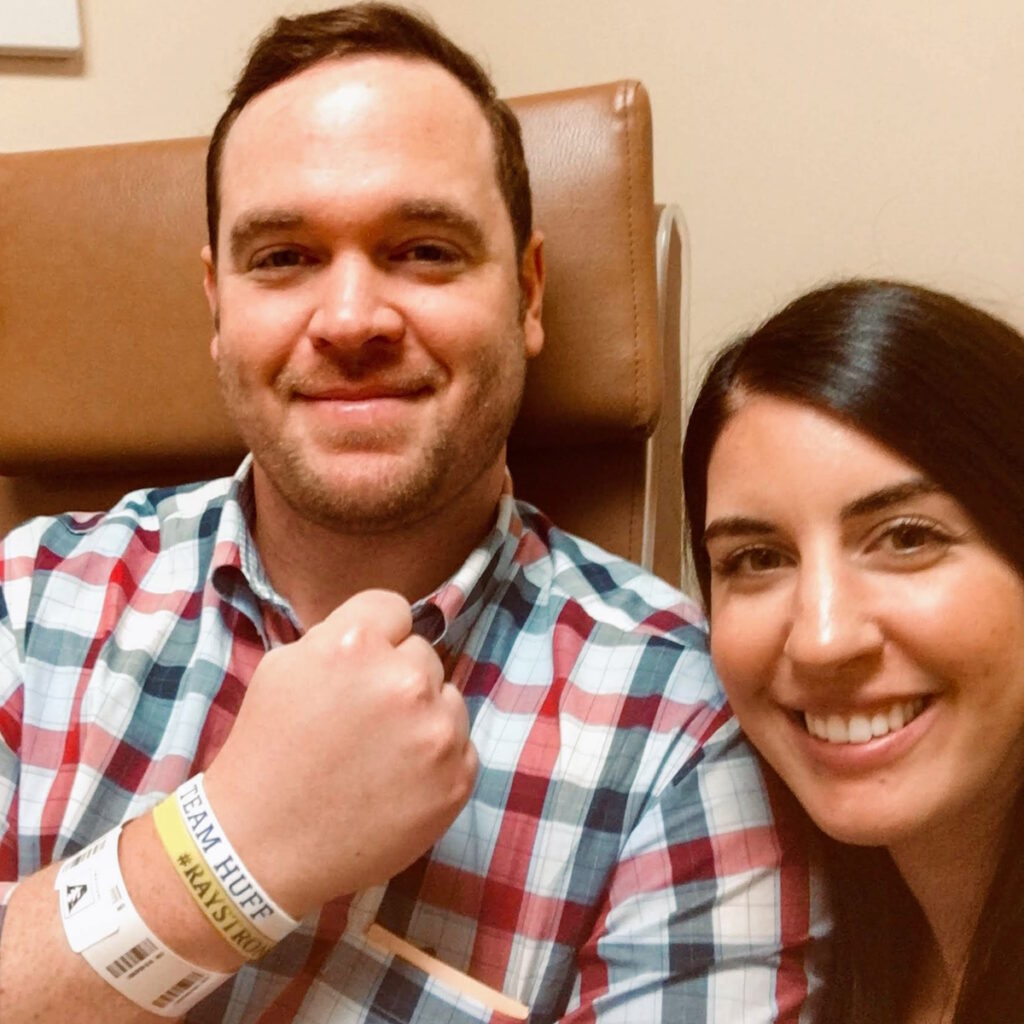
Caregivers withstand so much. They listen to us and go through everything we go through. Yet patients are often the priority.
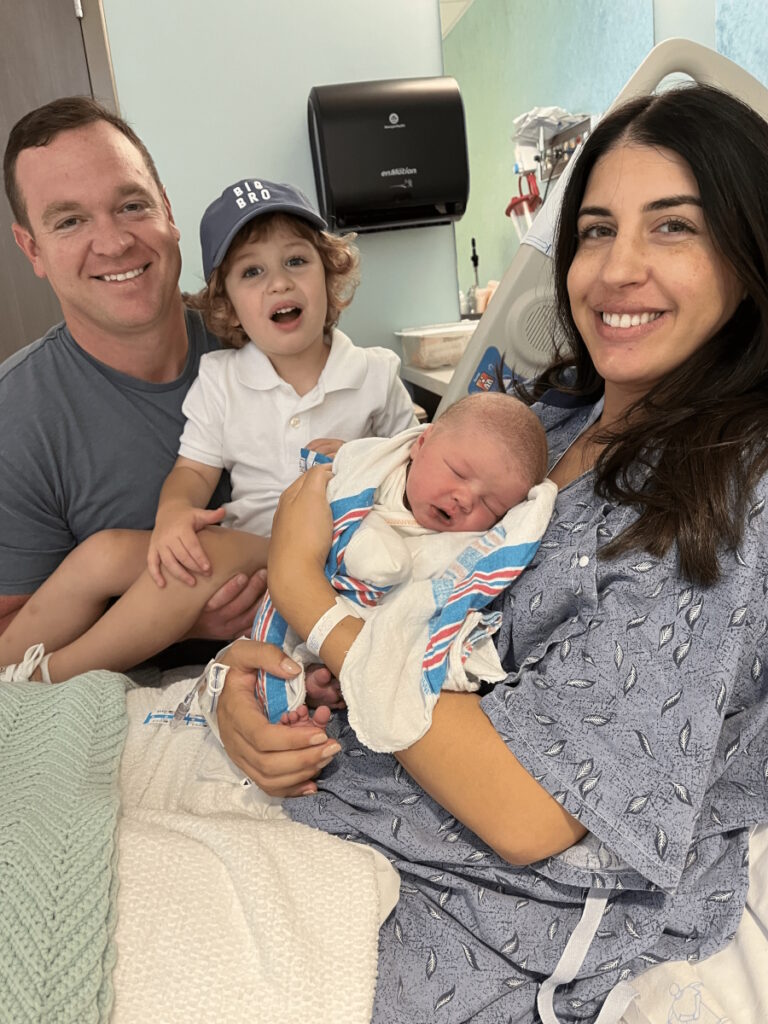
Sharing Our Emotions
Emily: I’ve always tried to steer away from showing Stephen my fear. I want him to see positivity and hope. It’s hard for a caregiver to take on that fear, worry, and stress alone. That’s why I think it’s important to find outlets because it is important to share those feelings.
I’ve never wanted to put that burden on Stephen because he’s going through enough with this diagnosis and his fear and worry. I think that’s the challenge of being a caregiver and not putting that on the patient’s plate.
Stephen: As a patient, I need to do a better job of thinking about her feelings above mine. Emily and I have talked about this. I’m very fortunate that I’m doing well. I’m a six-year survivor of stage 4 lung cancer. The reality is that we live in fear of something going wrong. We talked about what life would look like if something were to happen to me.
Emily: There have been moments where we’re vulnerable together. I’ve come out and shared all of my worries and fears. At the end of the conversation, we both feel better getting those worries and fears off our chests.
It’s shown me that I don’t have to hold it in so much and that Stephen is still my support, even though he’s the patient. He wants me to be vulnerable and share how I’m feeling with him, just as much as I need that from him as well. There have been moments where I’ve shared everything that I’m thinking and feeling, and it hasn’t been a negative. It’s brought us closer.
There have been moments where we’re vulnerable together. I’ve come out and shared all of my worries and fears. At the end of the conversation, we both feel better getting those worries and fears off our chests.
We Got Through Tough Times Together
Emily: If I could tell myself that we would still be here as a couple and we would have a family, a house, and live our lives as normal, I wouldn’t believe it. I would say get through the tough times and feelings of hopelessness because there is hope and beauty throughout this experience.
You’re not alone. There are many people out there who are going through the feelings, thoughts, and worries that you’re going through as well. It’s incredibly important to find your support system, whether that’s your partner, your family and friends, an online social media group, or a combination of all of those things.
It’s important to take care of yourself if you want to be there for the person you’re caring for. Don’t lose sight of making sure that you’re okay throughout this journey, too.
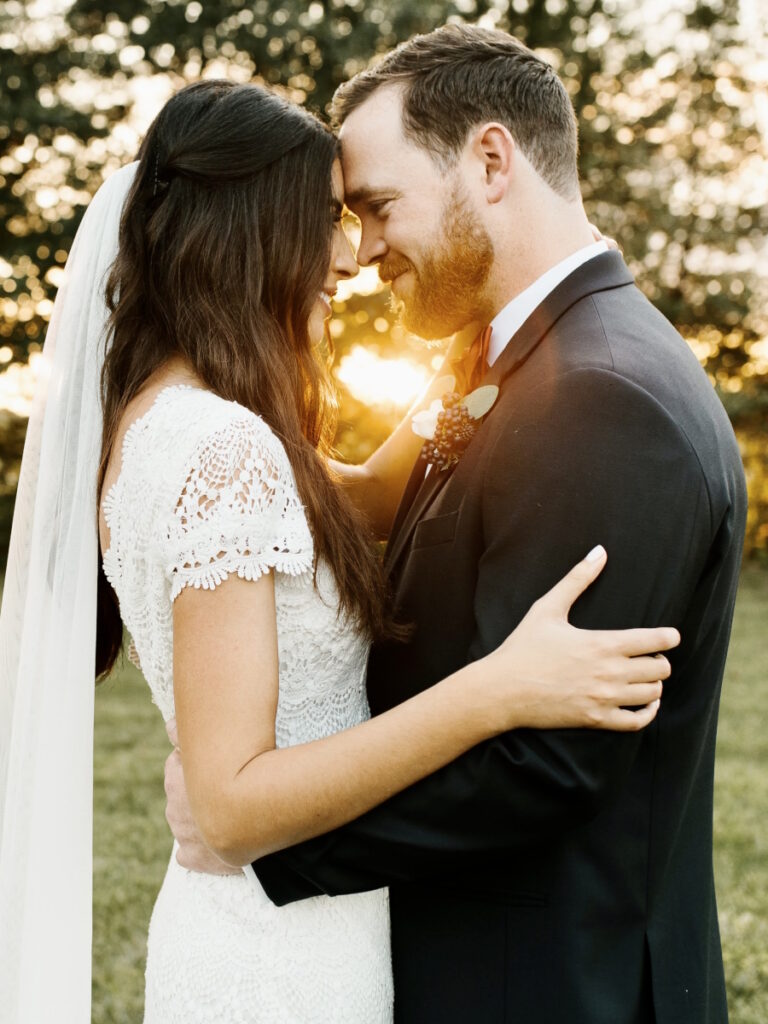
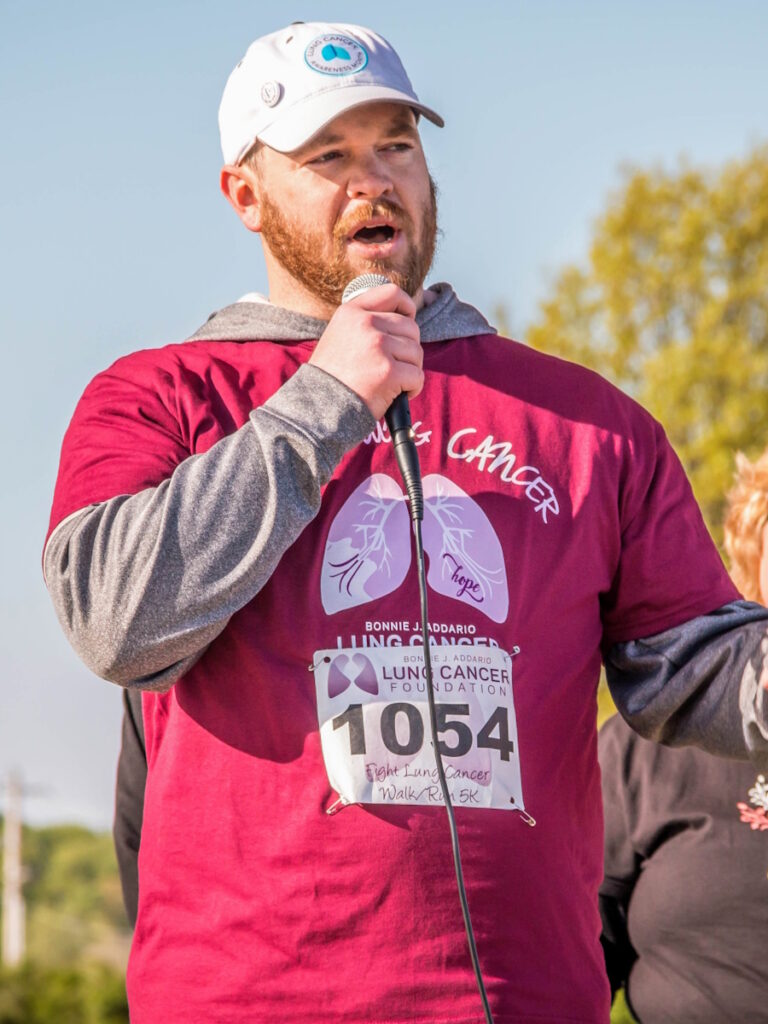
We Achieved our Dream of Parenthood
Emily: Stephen and I were engaged when he was diagnosed. It was three months before our wedding. We always knew that we wanted to be parents. That was core to our beliefs and our wants as a couple.
This diagnosis happened, and that’s the last thing you think about. You think instead about how you’re going to survive the day or the week.
Our oncologist talked to us right before Stephen started treatment to say that we should look at fertility options in case we decide to start a family down the road.
Stephen: When we talked to my oncologist about family planning and how I was a young cancer patient, my oncologist recommended we go to the sperm bank, and I had no interest in that. I was focused on getting my life in order. I had the hope that we could start a family someday.
I remember sitting in our bedroom and talking about how I was going to cancel the appointment at the fertility clinic. Emily asked why, and I said I didn’t see why I should do this.
“Are we going to have kids after all this? Stage 4. You heard the doctor. There’s no cure. What if we have kids? What if I die?” And she said, “Stephen, what if you live?”
Emily: We found so much hope in research and advancements in treatment options. We decided to move forward with family planning because we knew when we met each other that that was what we wanted out of life.
We did IVF while Stephen was still on treatment. We had our baby boy Owen in 2020, right before COVID. It was the best decision we ever made. But I questioned it for a long time. Is this something that we should do in our situation, bringing a child into this world with everything we have going on?
For so long after Stephen’s diagnosis, I felt that I would worry about what my life was going to turn out to be.
Having our son fulfilled my dream and gave me purpose. I do feel like I have a purpose in being there for Stephen and supporting him on his journey as a patient.
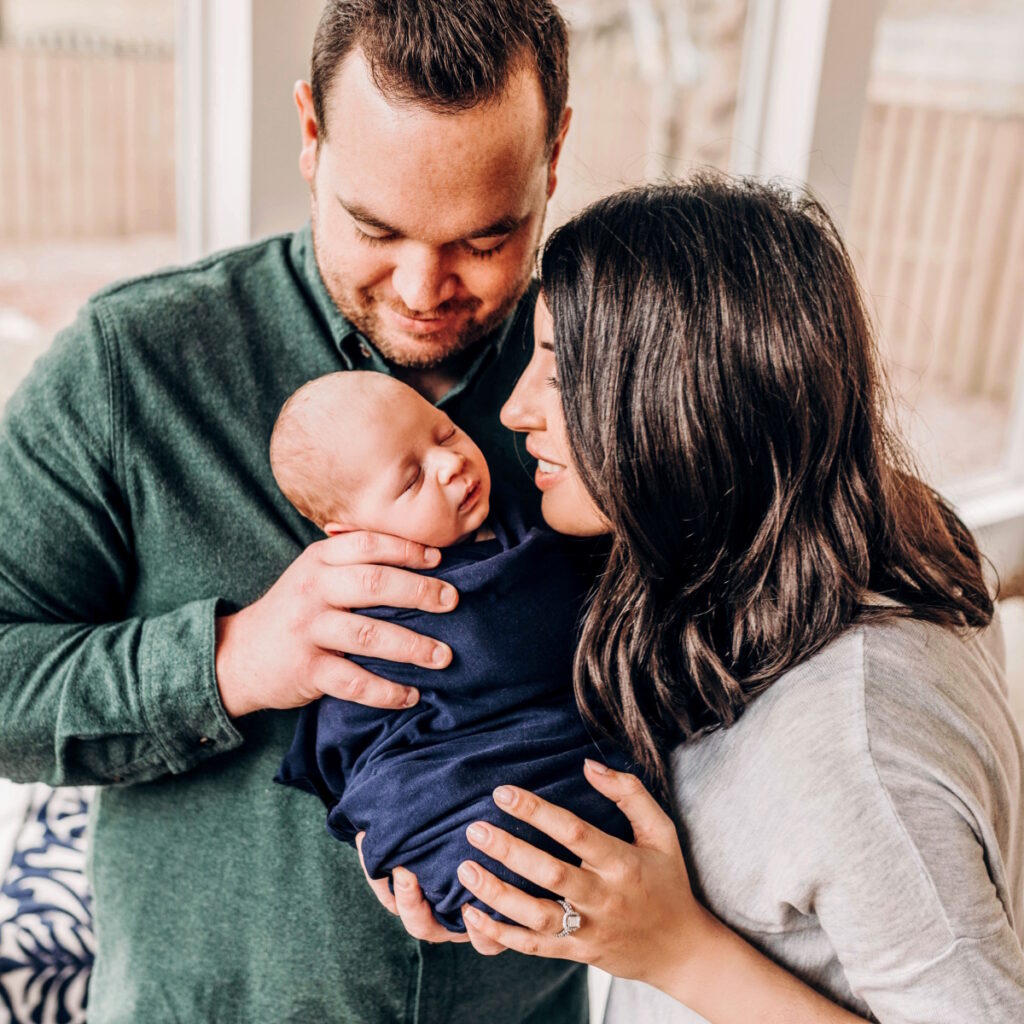
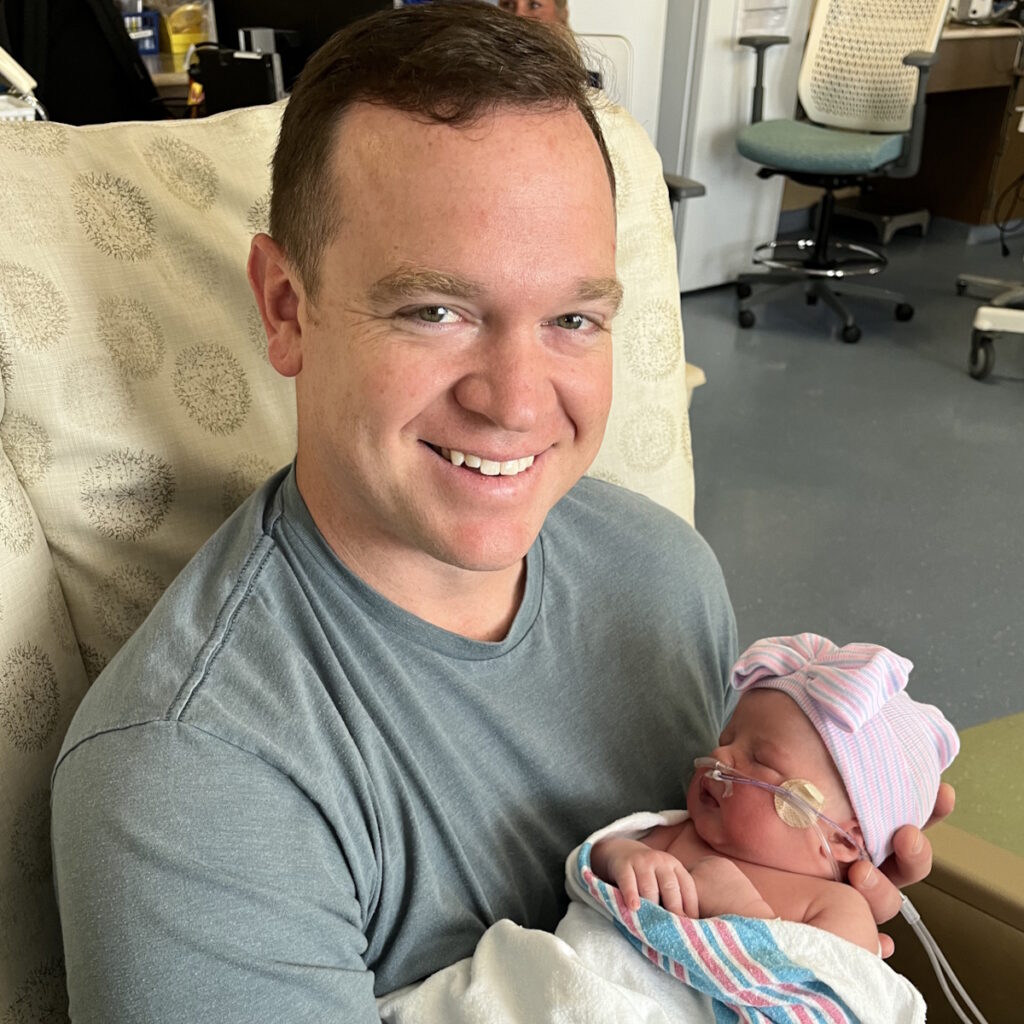
Now I’m a mom and I have two children to take care of and to love. They bring me so much purpose and joy. I don’t know why I spent one minute questioning if it was the right choice, because it feels like it was meant to be.
Stephen: Beating cancer doesn’t mean living to be 100 years old. It’s when I lay my head down on the pillow at night, and I can say “yes” to these questions: Was I the best husband possible? Was I present? Was I attentive? Was I the best dad I could be that day?
The greatest title I’ve ever had in my life isn’t “baseball player” or “teacher”; it’s “husband and dad.” Emily’s the reason why I’m alive today. The treatments have kept the cancer at bay, but she’s the one who’s kept me living, breathing, and enjoying life.
It’s important to take care of yourself if you want to be there for the person you’re caring for. Don’t lose sight of making sure that you’re okay throughout this journey, too.
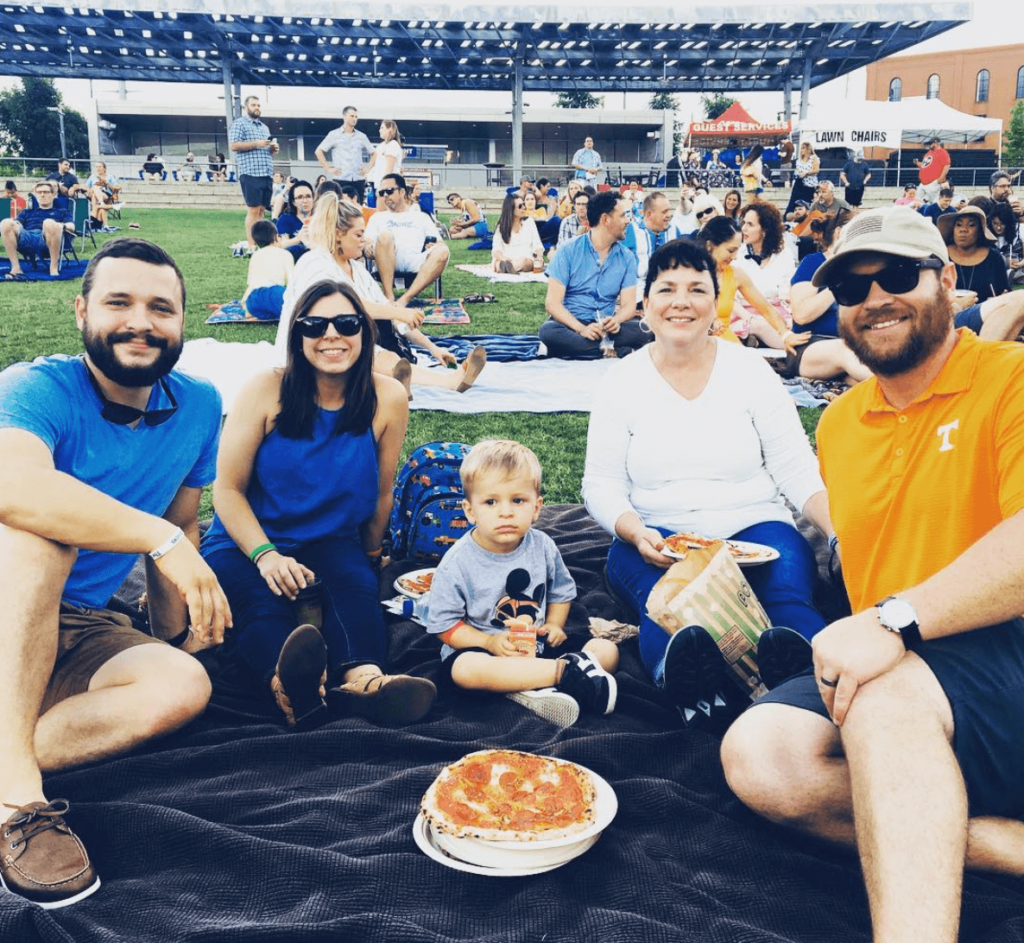
Episode 2

In our next episode, Stephen and Emily share a candid conversation, as they reflect on their journey together so far.

Special thanks again to Pfizer for supporting our patient education program. The Patient Story retains full editorial control over all content.

Inspired by Stephen and Emily's story?
Share your story, too!
Cancer Caregiver Stories
David Garrigues Ronda, Spouse of Laurent Gemenick, Bladder Cancer Patient
“Talk to family, talk to friends. Ask for help. Don't be alone. And above all, don’t miss any doctor's appointments.”
...
Lung Cancer Caregiver Series Episode 2: Stephen and Emily Huff's Candid Conversation
"We talked, and I remember saying, "What if we have kids and what if I die?" And you were like, "What if you live?"
...
Emily Huff, Spouse of Stephen, Lung Cancer Patient
“Emily's the reason why I’m alive today. The treatments have kept the cancer at bay, but she's the one who’s kept me living, breathing, and enjoying life.”
...
Blair D., Spouse of Brain Cancer Patient
“Find other people who are going through the same thing you are. This journey is very isolating and very lonely.”
...
Nat G., Spouse of Bladder Cancer Patient
“You have to become selfless as a caregiver. You have to assure that person that you are there for them.”
...
Kyle Appleford, Spouse of Lung Cancer Patient (Metastatic) with No History of Smoking
“Ask for help. Don’t be too prideful to accept the help. I wouldn’t be here without all the support from family and friends.”
...
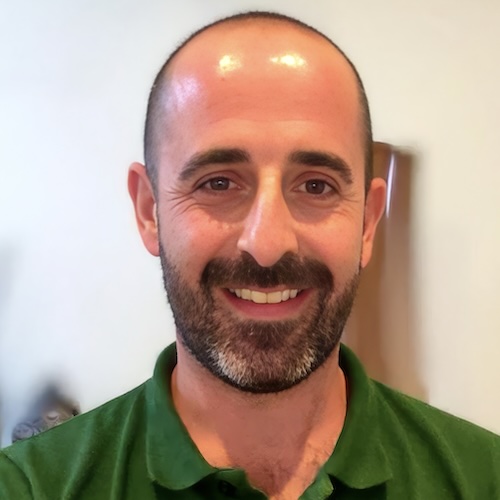
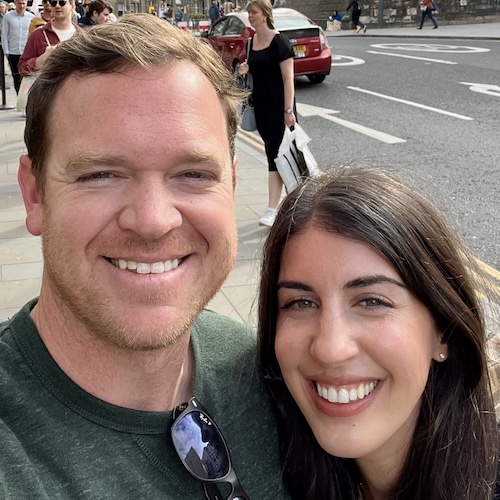
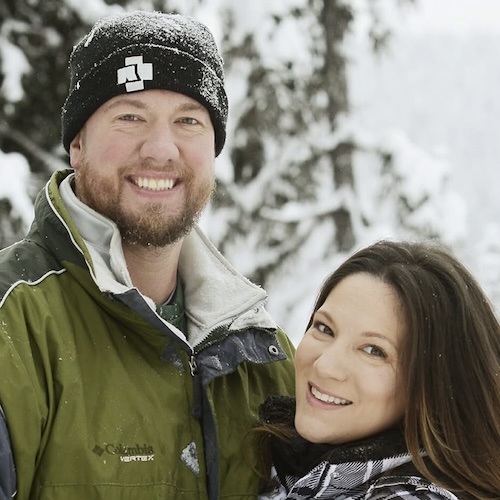
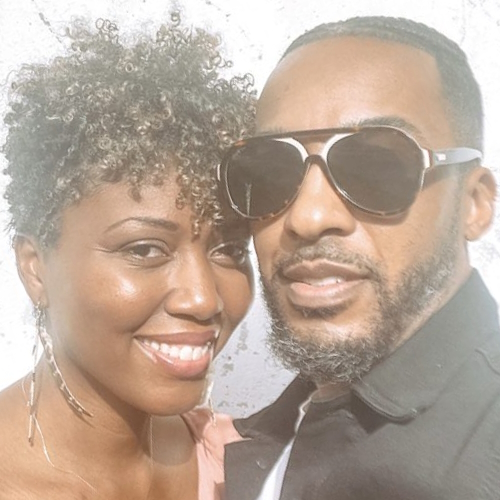
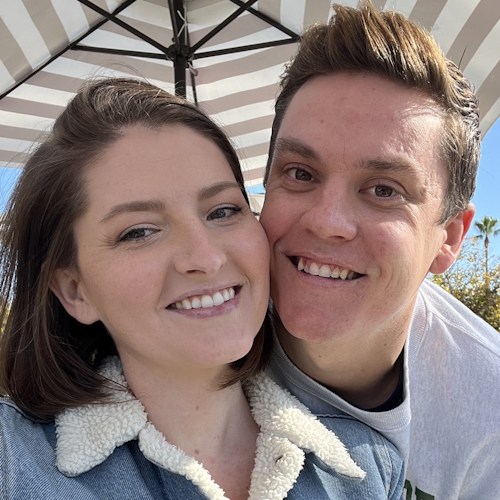
One reply on “Perspectives on Lung Cancer Caregiving: Stephen and Emily Huff”
Stephen and Emily Huff’s story is really moving because it shows how powerful support can be during something as hard as a stage 4 cancer diagnosis. Stephen was so young when he got sick, and while the treatments helped, he makes it clear that Emily’s role as his caregiver and partner is what kept him going. I think what stands out most is how they faced everything together the fear, the research, the tough emotions and still managed to hold onto their dream of becoming parents.